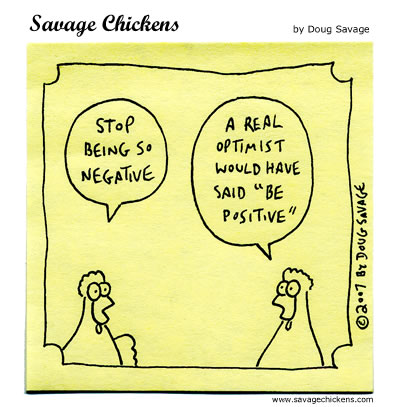
There are things I sometimes do when certain times of year roll around. I try to listen to Schuman’s Spring Symphony in the spring. I also like Mendelssohn’s Italian Symphony around this time of year.
I also try to pull out this poem by James Dickey.
SLEEPING OUT AT EASTER
All dark is now no more.
The forest is drawing a light.
All Presences change into trees.
One eye opens slowly without me.
My sight is the same as the sun’s,
For this is the grave of the king,
When the earth turns, waking a choir.
All dark is now no more.Birds speak, their voices beyond them.
A light has told them their song.
My animal eyes become human
As the Word rises out of the darkness
Where my right hand, buried beneath me,
Hoveringly tingles, with grasping
The source of all song at the root.
Birds speak, their voices beyond them.Put down those seeds in your hand.
These trees have not yet been planted.
A light should come round the world,
Yet my army blanket is dark,
That shall sparkle with dew in the sun.
My magical sheperd’s cloak
Is not yet alive on my flesh.
Put down those seeds in your hand.In your palm is the secret of waking.
Unclasp your purple-nailed fingers
And the woods and the sunlight together
Shall spring, and make good the world.
The sounds in the air shall find bodies,
And a feather shall drift from the pine-top
You shall feel, with your long-buried hand.
In your palm is the secret of waking,For the king’s grave turns him to light.
A woman shall look through the window
And see me here, huddled and blazing.
My child, mouth open, still sleeping,
Hears the song in the egg of a bird.
The sun shall have told him that song
Of a father returning from darkness,
For the king’s grave turns you to light.All dark is now no more.
In your palm is the secret of waking.
Put down those seeds in your hand;
All Presences change into trees.
A feather shall drift from the pine-top.
The sun shall have told you this song,
For this is the grave of the king;
For the king’s grave turns you to light.—James Dickey

So all that’s left of Holy Week is the celebration of the Vigil. My community does it as sort of a faux sunrise service on Sunday morning instead of the more traditional Saturday evening.
This has been an exceptionally troubling holy week for me. I think I have once again been caught into the struggling idealism of Christianity. For me this is one of those truth is beauty and beauty is truth sort of things.
And there have been some very good parts to this week. My choir has been very good about showing up for rehearsals and services. Having the choir sing at all Holy Week services was something I think is a logical expression of these rituals and a goal I have been working towards.
If Christ lives at all (a big If for me) he lives in the bodies and actions of those around us. Salinger’s “Jesus Christ is the fat lady in the fifth row” and admittedly pious expressions of the community as the “Body of Christ” are a couple examples that spring to mind.
“I remember about the fifth time I ever went on ‘Wise Child.’ I subbed for Walt a few times when he was in a cast — remember when he was in that cast? Anyway, I started bitching one night before the broadcast. Seymour’d told me to shine my shoes just as I was going out the door with Waker. I was furious. The studio audience were all morons, the announcer was a moron, the sponsors were morons, and I just damn well wasn’t going to shine my shoes for them, I told Seymour. I said they couldn’t see them anyway, where we sat. He said to shine them anyway. He said to shine them for the Fat Lady. I didn’t know what the hell he was talking about, but he had a very Seymour look on his face, and so I did it. He never did tell me who the Fat Lady was, but I shined my shoes for the Fat Lady every time I ever went on the air again — all the years you and I were on the program together, if you remember. I don’t think I missed more than just a couple of times. This terribly clear, clear picture of the Fat Lady formed in my mind. I had her sitting on this porch all day, swatting flies, with her radio going full-blast from morning till night. I figured the heat was terrible, and she probably had cancer, and — I don’t know. Anyway, it seemed goddam clear why Seymour wanted me to shine my shoes when I went on the air. It made sense.”
“I don’t care where an actor acts. It can be in summer stock, it can be over a radio, it can be over television, it can be in a goddam Broadway theatre, complete with the most fashionable, most well-fed, most sunburned-looking audience you can imagine. But I’ll tell you a terrible secret — Are you listening to me?There isn’t anyone out there who isn’t Seymour’s Fat Lady. That includes your Professor Tupper, buddy. And all his goddam cousins by the dozens. There isn’t anyone anywhere that isn’t Seymour’s Fat Lady. Don’t you know that? Don’t you know that goddam secret yet? And don’t you know — listen to me, now —don’t you know who that Fat Lady really is? … Ah, buddy. Ah, buddy. It’s Christ Himself. Christ Himself, buddy.
from Franny and Zooey by J.D. Salinger
While the choir and the priests have been inspiring, there have been other moments which have challenged my optimism and my notion that there is any importance to beauty and music.
I can’t shake the feeling that my life has been one that has been warped by church. I have embraced aspects of my Christian background. The beautiful stories and historical music and ritual. I have also admittedly tried in my weak human way to pursue the radical teachings of the New Testament Christ of human love and acceptance.
But my life lived in the church has been a pretty typical human life full not only of fragile beauty and idealism but also weakness, betrayal, phoniness and hypocrisy.

For me the redeeming moments are the ones where I witness the strength of kindness that opposes cruelty and beauty that persists even when ignored and actively discouraged.
Last night, a parishioner played a movement from a Bach unaccompanied cello suite as the prelude. This was an incredible moment for me. Lovely lovely profound music in a good context (Good Friday).
One of the choir’s two anthems was based on Faure’s Pavanne. The arranger gave this famous melody of this piece to the right hand of the organist (that would be me in this case).
This is kind of a hokey movie music kind of thing, but I did sweat some bullets trying to pull off this accompaniment. It seemed to go okay.
The other choral anthem was an arrangement (transcription) I myself did of one of Brahm’s religious pieces he wrote for women’s voices. The choir did a good job, but I don’t think my conducting was served by trying to keep some of them on pitch with the piano at the same time I was conducting. Oh well.
Yesterday afternoon I walked into the local city office and bought my street musician licence for this year. Right now I feel like I would be much more comfortable playing on the street than anywhere else. Listening for Dickey’s “song in the egg of a bird.”

